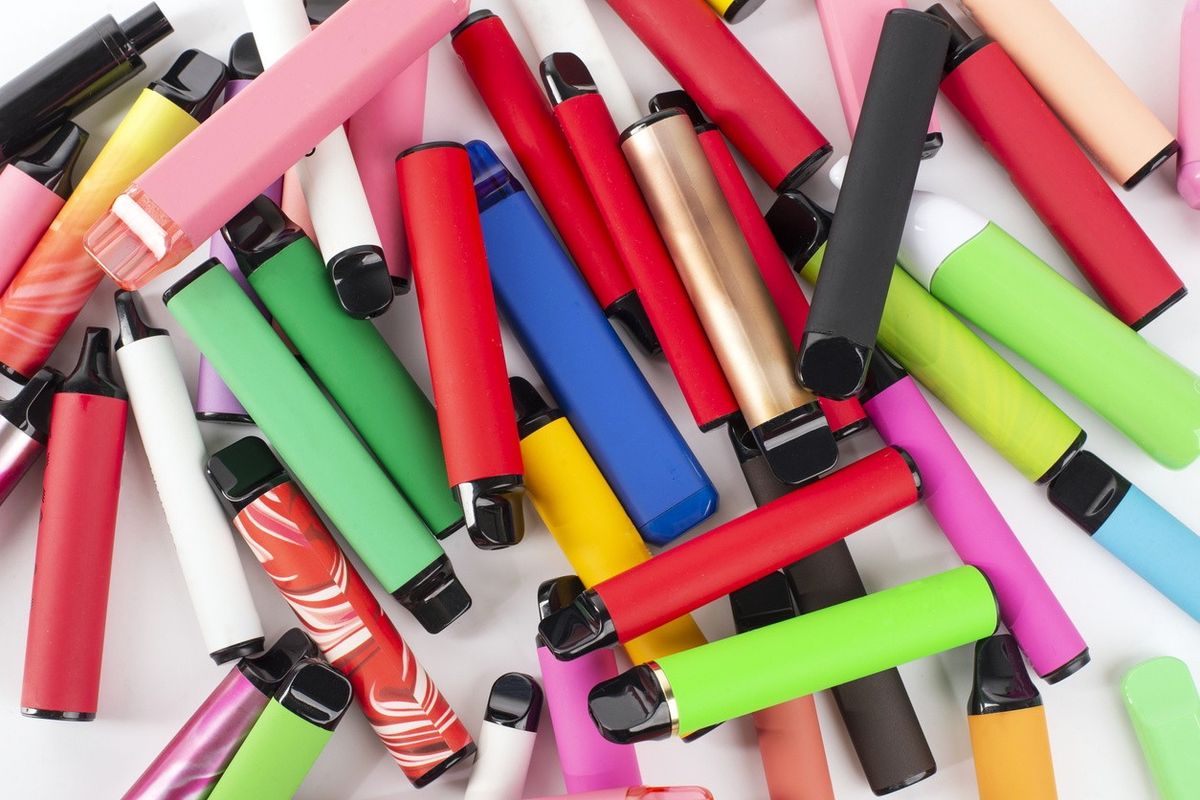The UK Vaping Industry Association (UKVIA) has published a comprehensive “Greenprint for Sustainable Vaping’ following an industry wide consultation.
The development of a green action plan was developed with input from leading players in the waste industry, regulators, the retail sector, vape manufacturers and experts in consumer behaviour. It comes as the industry has faced increased scrutiny regarding the environmental impact of vapes, particularly disposables.
“Whilst entry-level single use devices are responsible for record numbers of adult smokers switching to vaping due their ease of use and convenience, the industry realises that much more must be done to safeguard against their impact on the environment. The fact is that disposables have been around for a while but have become hugely popular in the last couple of years, particularly with those on low incomes who are amongst the most prevalent smokers,” John Dunne, UKVIA director general, said.
“The Greenprint aims to mobilise environmental action to support a sustainable vaping sector in the future. It covers the development of recycling infrastructure which is fit for the vaping industry, new vape innovations that make products more recyclable and reusable, as well as the support that needs to be put in place to encourage greater retailer and consumer participation in the environmentally-conscious disposal of vape products.”
The environmental action list includes:
Retail
- Point-of-sale posters to be used in store to inform vape customers that used devices should be recycled and not thrown away.
- Better training for retail staff so they can properly advise customers about recycling options.
- Retailers to inform vapers that refillable, multi-use devices are more cost-effective and environmentally friendly than single use systems.
- Retailers to provide in-store collection points for all used vape devices brought in for disposal (not just those products purchased from their particular store) and encourage people to use them.
- In-store collection points to be prominently located with no obligations for those dropping off devices to buy more.
Consumer
- Industry to refer to disposables as recyclables and not single-use products in order to stop their throwaway behaviours.
- Manufacturers and/or retailers to offer incentives to customers for recycling used devices.
- Develop public information advertising campaigns to normalise recycling of vapes so that there is social shame and peer pressure in throwing them away.
- Harness smartphone apps to inform vapers regarding their nearest vape recycling bin.
- Vape manufacturers and retailers to incorporate recycling guidance and messages in future promotional campaigns and on/within packaging.
Product Design
- Packaging to better highlight to consumers that vape devices must be recycled and not thrown away, for example through the use of words such as ‘Recyclable’ or ‘Recycle Me’.
- Explore how single use vape products can be re-engineered for future use.
- Vape manufacturers to visit waste processing plants so they can understand material flow and build this factor into the design of their products to facilitate the recycling process.
- The industry to look at more environmentally-friendly power sources than lithium batteries.
Waste Infrastructure
- Make it as easy as possible for consumers to recycle used products by setting up recycling collection facilities at point of use and not just point of sale (for example pubs, clubs, transport hubs and offices).
- The vape industry and waste providers to work closely together to find a viable, long-term solution for disposing of and recycling products.
- The waste industry to design simple and easy-to-use vape recycling containers.
Regulatory and Policy
- All relevant vape businesses to be compliant with the Waste Electrical and Electronic Equipment Regulations 2013 (WEEE regulations); the Producer Responsibility Obligations (Packaging Waste) Regulations 2007 and the Packaging Waste (Data Reporting) Regulations 2023.
- Producers to either register with an environmental regulator or join a Producer Compliance Scheme (depending on product volumes)
- Proportionate regulation to ensure that manufacturers are environmentally responsible but without deterring smokers from switching to vaping.
- The regulatory framework to not only punish transgressors but also reward producers for their environmental performances.
- Revise legislation to increase maximum tank sizes from 2ml to 10ml to reduce waste drastically.


